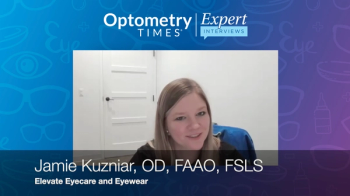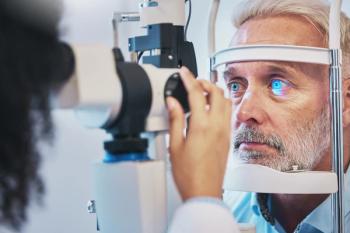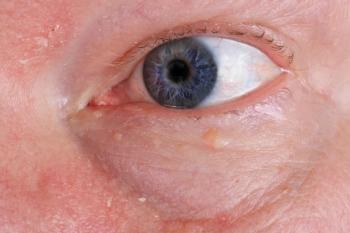
Helping patients better understand glaucoma
When I was a resident at the SUNY College of Optometry, I was asked a to conduct a few patient question and answer sessions regarding glaucoma. The sessions consisted of me sitting with a small group of patients, family members, or whoever wanted to know more about glaucoma.
When I was a resident at the SUNY College of Optometry, I was asked a to conduct a few patient question and answer sessions regarding glaucoma. The sessions consisted of me sitting with a small group of patients, family members, or whoever wanted to know more about glaucoma.
These sessions took place in a private corner of the first floor of the SUNY building in New York City. I remember the following questions that were worth asking and answering:
• What exactly is glaucoma?
• Who gets glaucoma?
• What can be done about glaucoma?
• How do I know if I’m going to go blind from glaucoma?
• How often should I get my eyes examined?
• Does having normal intraocular pressure (IOP) mean I will not get glaucoma?
I also remember the daughter of an elderly glaucoma patient taking notes as I spoke, and the small audience being thankful for the opportunity to ask questions outside of the exam room.
Previously from Dr. Casella:
What patients prefer
A paper in the April 2017 issue of Optometry and Vision Science brought these fond memories back.1 The paper outlines a cross-sectional study of a small (N=49) sample of African-American patients with glaucoma in a private ophthalmology clinic. The patients were asked to fill out a brief questionnaire, then responses were tallied and outlined in the study.
As expected, the question pertaining to prognosis had a high frequency of incidence (checked 49 percent of the time). Additionally, the question pertaining to one’s IOP was checked 45 percent of the time.1
Regarding educational programs, 76 percent of patients in the study preferred educational programs to be offered in the doctor’s office, while 39 percent of the patients preferred such programs to be offered in senior centers.1
Related:
Younger patients were more likely to desire an Internet-based program than were patients over age 70. An overwhelming 90 percent of patients studied reported that they preferred Internet-based programs to be conducted by doctors, and the two most popular proposed topics were glaucoma medications (84 percent) and the definition and prognosis of glaucoma (83 percent).1
Research assists patient education
While the cross-sectional study is small, it brings to light a few significant points: Patients have questions about their eye diseases and are eager for those questions to be answered. They also want their questions to be answered by their doctors.
It can be implied that if ODs don’t seek out questions from our patients, then patients may not ask us-turning elsewhere for the answers.
Countless amounts of information concerning glaucoma is available on the Internet. However, it can be difficult for patients to sort through everything that is not peer-reviewed, overtly biased, or just factually inaccurate in order to come up with tangible information based on empirical evidence.
This goes hand in hand with the ethical obligations ODs have to inform patients and to keep them current with diagnostic and therapeutic approaches as they evolve-and they will only continue to evolve.
Related:
Tips to keep the conversation going
While it isn’t feasible or considerate to others to sit with every patient and talk about glaucoma for 30 minutes, you may be able to incorporate a short session or two every quarter or so. This can help open the conversation in an organized fashion of what concerns patients and their families have.
It is relatively simple to get lulled into thinking that all questions have been answered after a glaucoma visit. Just because all of the OD’s questions have been answered (i.e., has the visual field or OCT study shown progression; are we at target IOP; do medications need to be refilled), doesn’t mean all of the patients’ questions have been answered.
Patients are significantly concerned with losing vision with respect to losing other senses.2 Arming our patients with the correct information and allowing them to ask questions in a comfortable manner may help ensure ensuring that we share the correct and common goals for attaining the best quality outcomes.3
References:
1. Sleath B, Davis S, Sayner R, Carpenter DM, Johnson T, Blalock SJ, Robin AL. African American Patient Preferences for Glaucoma Education. Optom Vis Sci. 2017 Apr;94(4):482-486.
2. Scott AW, Bressler NM, Ffolkes S, Wittenborn JS, Jorkasky J. Public Attitudes About Eye and Vision Health. JAMA Ophthalmol. 2016 Oct 1;134(10):1111-1118.
3. Giridhar P, Dandona R, Prasad MN, Kovai V, Dandona L. Fear of blindness and perceptions about blind people. The Andhra Pradesh Eye Disease Study. Indian J Ophthalmol. 2002 Sep;50(3):239-46.
Newsletter
Want more insights like this? Subscribe to Optometry Times and get clinical pearls and practice tips delivered straight to your inbox.













































